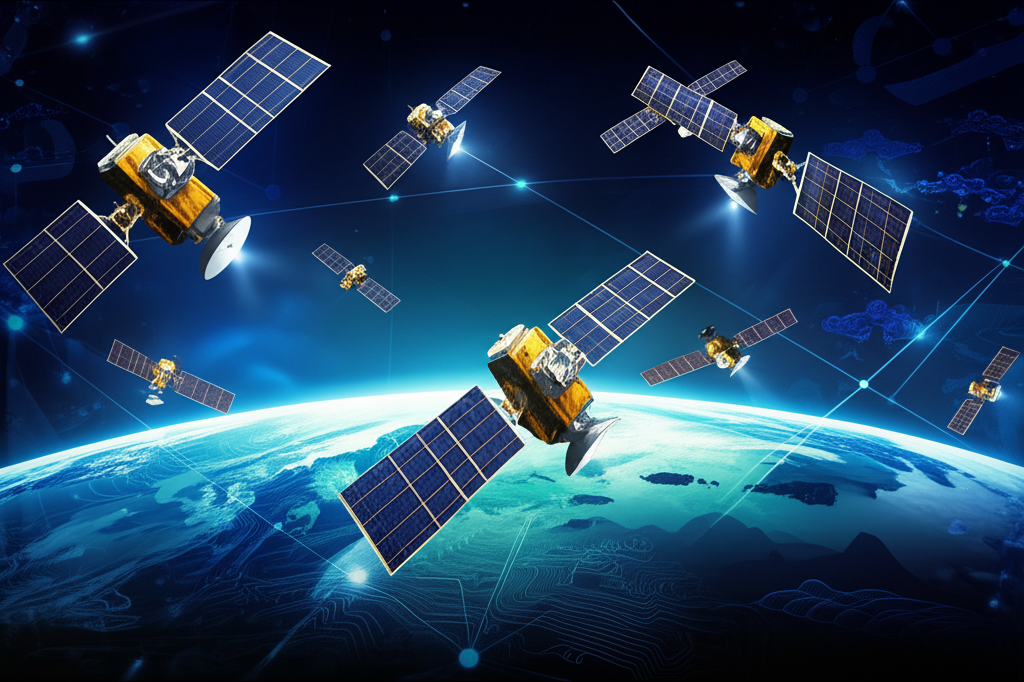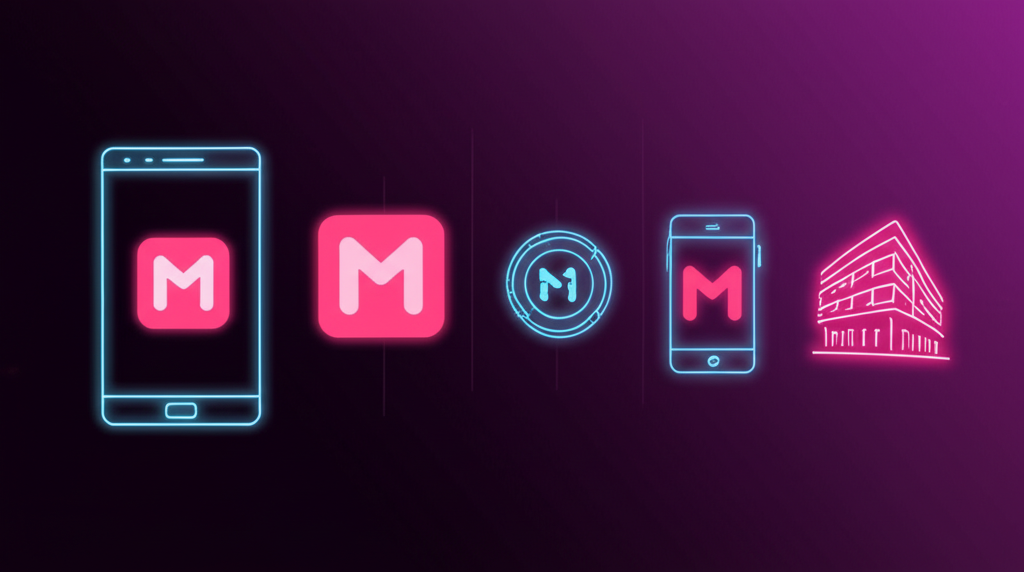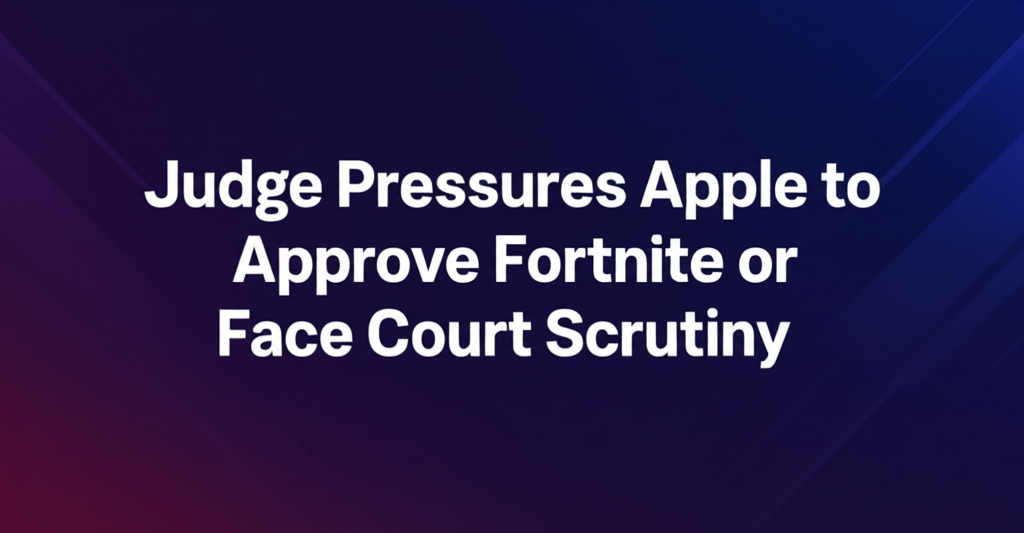Google I/O 2025: Unpacking the Key Announcements and AI Innovations
Google I/O 2025, the tech giant's premier developer conference, recently wrapped up, delivering a torrent of announcements that underscored Google's relentless pursuit of innovation, particularly in the realm of artificial intelligence. Held at the Shoreline Amphitheatre in Mountain View, the two-day event served as a crucial platform for Google to showcase the latest advancements across its vast ecosystem, spanning Android, Chrome, Google Search, YouTube, and its flagship AI model, Gemini.
While Google had previously dedicated a separate virtual event, 'The Android Show,' to detail some Android-specific news – including new features for finding lost devices, enhanced security protections against scams and theft, and the introduction of a new design language called Material 3 Expressive – I/O 2025 brought together a comprehensive view of the company's strategic direction. The overarching theme was clear: AI is not just a feature, but the foundational layer integrating and enhancing nearly every Google product and service.
The conference floor buzzed with excitement as Google executives unveiled a series of powerful new AI models, expanded capabilities for existing platforms, and significant updates aimed at both consumers and developers. From generating sophisticated video and images to enabling real-time, multimodal interactions and empowering developers with AI-driven coding tools, the announcements painted a picture of a future deeply intertwined with artificial intelligence. Let's delve into the key highlights from Google I/O 2025.
The Evolution of Gemini and Core AI Models
At the heart of many of Google's I/O announcements was Gemini, its multimodal AI model. The company revealed significant expansions and enhancements to the Gemini family and its underlying technologies, pushing the boundaries of what AI can do.
Gemini Ultra: The Premium AI Experience
A major reveal was the introduction of Gemini Ultra, positioned as the highest tier of access to Google's most advanced AI capabilities. Priced at a substantial $249.99 per month (initially available only in the U.S.), this premium subscription is designed for users and professionals who require the absolute cutting edge of Google's AI technology. The Ultra tier bundles access to a suite of powerful tools and services, signaling Google's move towards monetizing its most sophisticated AI offerings.
Subscribers to AI Ultra gain access to Google's latest generative AI models, including the newly announced Veo 3 video generator and the upcoming Flow video editing app. Crucially, it also includes access to Gemini 2.5 Pro's unreleased 'Deep Think' mode, promising enhanced reasoning capabilities. Beyond generative tools, AI Ultra provides higher usage limits within Google's NotebookLM platform and the Whisk image remixing app. The subscription extends its value proposition by integrating with other Google services, offering access to the Gemini chatbot directly within Chrome, providing 'agentic' tools powered by Project Mariner technology (allowing AI to perform tasks across the web), and bundling popular services like YouTube Premium and a massive 30TB of storage across Google Drive, Google Photos, and Gmail. This comprehensive package positions Gemini Ultra as a powerful, albeit expensive, toolkit for creators, researchers, and power users.
Deep Think in Gemini 2.5 Pro: Enhanced Reasoning
Building on the capabilities of its flagship Gemini 2.5 Pro model, Google introduced 'Deep Think,' an enhanced reasoning mode. While details on its inner workings were kept somewhat under wraps, Google described Deep Think as a mode that allows the model to explore and evaluate multiple potential answers to a query before formulating its final response. This process is intended to significantly boost the model's performance on complex reasoning tasks and benchmarks, potentially leading to more accurate and nuanced outputs.
The concept of Deep Think appears conceptually similar to approaches being explored by other leading AI labs, where models engage in internal deliberation or search processes to arrive at better solutions. Google announced that Deep Think is currently available to 'trusted testers' through the Gemini API, indicating a cautious rollout process focused on safety evaluations before a wider release. This suggests Google is prioritizing responsible development and deployment of its most advanced reasoning capabilities.
Veo 3: Advancing AI Video Generation
Generative AI for media creation continues to be a hot area, and Google made a significant splash with the announcement of Veo 3, its latest video-generating AI model. Google claims Veo 3 represents a substantial leap forward from its predecessor, Veo 2, particularly in the quality and fidelity of the generated footage. One of the most notable features highlighted is Veo 3's ability to generate not just video, but also accompanying sound effects, background noises, and even dialogue, adding a crucial layer of realism and complexity to the output.
Veo 3 became available to Google's AI Ultra subscribers immediately following the announcement, accessible through the Gemini chatbot app. Users can prompt Veo 3 using either text descriptions or by providing an image as a starting point, offering flexible ways to initiate the creative process. The integration into the premium tier reinforces Veo 3's position as a high-end tool for video creation.
Imagen 4: Faster and More Detailed Image Generation
Complementing its video generation capabilities, Google also unveiled Imagen 4, the newest iteration of its AI image generator. Speed was a key focus for Imagen 4, with Google stating it is already faster than Imagen 3. Looking ahead, Google plans to release a variant of Imagen 4 that promises an astonishing 10x speed increase compared to Imagen 3, which would dramatically accelerate the image generation workflow for users.
Beyond speed, Imagen 4 is touted for its ability to render 'fine details' with remarkable accuracy, including intricate textures like fabrics, the subtle nuances of water droplets, and the complexity of animal fur. The model is designed to handle a wide range of artistic styles, from photorealistic renderings to abstract compositions, and supports various aspect ratios and resolutions up to 2K. Both Veo 3 and Imagen 4 are slated to be integral components powering Flow, Google's upcoming AI-driven video tool specifically geared towards filmmaking, suggesting a cohesive strategy for generative media creation tools.
Expanding the Reach and Capabilities of Gemini Apps
The Gemini AI app ecosystem is rapidly growing, and Google shared impressive user numbers, announcing that Gemini apps now boast over 400 million monthly active users. This widespread adoption sets the stage for new features designed to make Gemini more interactive, integrated, and useful in daily life.
Gemini Live: Real-Time Multimodal Interaction
A standout feature rolling out this week to all iOS and Android users is Gemini Live. Powered by the underlying technology of Project Astra, Gemini Live enables near-real-time verbal conversations with the Gemini AI. What makes it particularly innovative is its ability to stream video from the user's smartphone camera or screen directly to the AI model. This allows users to point their camera at an object or share their screen content and discuss it naturally with Gemini, receiving immediate, contextually relevant responses.
Google also announced deeper integrations for Gemini Live with its suite of productivity apps. In the coming weeks, Gemini Live will be able to provide directions using Google Maps, create events in Google Calendar, and generate to-do lists with Google Tasks, making the AI a more proactive and helpful assistant across different aspects of a user's digital life.
Deep Research Updates: Personalized Insights
Gemini's Deep Research agent, designed to compile comprehensive research reports, is receiving an update that enhances its utility for personalized information gathering. Google is adding the capability for users to upload their own private PDFs and images. This allows Deep Research to incorporate personal documents and visual information into its analysis and report generation, making it a more powerful tool for tasks like summarizing research papers, analyzing personal data, or extracting information from images.
AI for Developers: Building the Future
Recognizing the critical role developers play in building the next generation of applications, Google introduced several AI-powered tools aimed at streamlining development workflows and enabling new types of applications.
Stitch: AI-Powered UI Design and Code Generation
Stitch is a new AI-powered tool designed to assist developers in creating web and mobile application front ends. By generating necessary UI elements and code, Stitch aims to accelerate the design and prototyping process. Developers can prompt Stitch using simple text descriptions or even by providing an image of a desired interface. Stitch then generates HTML and CSS markup for the designs, providing a tangible starting point for implementation.
While Google noted that Stitch is currently more limited in scope compared to some other 'vibe coding' products, it offers a degree of customization options. This tool represents Google's effort to bring generative AI directly into the design and front-end development pipeline.
Expanded Access to Jules: AI for Code Debugging
Google also announced expanded access to Jules, its AI agent specifically designed to help developers fix bugs in code. Jules assists developers in understanding complex codebases, can create pull requests on platforms like GitHub to propose fixes, and is capable of handling certain backlog items and programming tasks. By leveraging AI to analyze code and suggest solutions, Jules aims to reduce the time and effort developers spend on debugging and routine coding tasks.
Project Mariner: AI That Browses and Acts on the Web
Project Mariner, Google's experimental AI agent focused on browsing and interacting with websites, received significant updates and is now rolling out to users. Google highlighted that Project Mariner has been enhanced to handle nearly a dozen tasks concurrently, demonstrating a leap in its ability to manage complex, multi-step web interactions.
The core promise of Project Mariner is to allow users to delegate web-based tasks to the AI agent without needing to navigate the websites themselves. Examples provided include purchasing tickets to a baseball game or buying groceries online. Users can simply communicate their intent to the AI agent, which then autonomously visits the relevant websites and performs the necessary actions on their behalf. This represents a significant step towards more autonomous and agentic AI systems that can interact with the digital world like a human user.
Project Astra: The Foundation for Real-Time, Multimodal AI
Project Astra, born out of Google DeepMind, is Google's ambitious effort to create a low-latency, multimodal AI experience capable of near-real-time understanding and interaction with the world. At I/O 2025, Google announced that Project Astra's technology will power a range of new experiences across its products, including Google Search, the Gemini AI app (as seen with Gemini Live), and will be made available to third-party developers.
Project Astra is designed to perceive and process information from multiple modalities simultaneously – seeing, hearing, and understanding context in real-time. Google also provided an update on its efforts to build Project Astra-powered smart glasses with partners like Samsung and Warby Parker. While no specific launch date was given, the demonstration and partner announcements signal Google's commitment to bringing this advanced, context-aware AI into wearable form factors, potentially enabling entirely new ways of interacting with information and the environment.
AI Mode in Google Search: A Smarter Way to Query
Google Search, the company's foundational product, is also being infused with advanced AI capabilities. Google announced the rollout of 'AI Mode' in the U.S., an experimental feature that allows users to ask complex, multi-part questions directly via an AI interface within Search. This mode is designed to understand nuanced queries and provide more comprehensive, AI-generated answers.
AI Mode will initially support complex data analysis within sports and finance queries, allowing users to get detailed insights based on intricate data sets. Furthermore, Google previewed features like 'try it on' options for apparel within Search results, leveraging AI for visual previews. Looking ahead, 'Search Live,' a feature rolling out later in the summer, will allow users to ask questions based on what their phone's camera is seeing in real-time, bringing Project Astra's capabilities directly into the Search experience. Gmail was highlighted as the first app to be supported with personalized context within AI Mode, suggesting future integrations across other Google services.
Beam: 3D Teleconferencing for Immersive Meetings
Formerly known as Starline, Google's 3D teleconferencing platform has been officially rebranded as 'Beam' and is slated to ship later in 2025. Beam utilizes a sophisticated combination of hardware and software, including a six-camera array and a custom light field display, to create a sense of presence, making it feel as though the remote participant is in the same room. An AI model is crucial to this experience, converting video streams from multiple angles into a realistic 3D rendering.
Google emphasized Beam's technical prowess, noting its 'near-perfect' millimeter-level head tracking and smooth 60fps video streaming, which contribute significantly to the immersive effect. When integrated with Google Meet, Beam gains an AI-powered real-time speech translation feature. This is particularly impressive as it not only translates the spoken words but also aims to preserve the original speaker's voice characteristics, tone, and facial expressions, making cross-language communication feel more natural and personal. Google also separately announced that real-time speech translation is coming more broadly to Google Meet, extending this capability beyond the Beam hardware.
More AI Updates Across Google's Portfolio
The AI announcements at I/O 2025 were extensive, touching numerous products:
- Gemini in Chrome: A new AI browsing assistant integrated directly into the Chrome browser will help users quickly understand the context of a web page and assist with tasks related to the page content.
- Gemma 3n: A new, more efficient AI model designed to run smoothly on a wider range of devices, including phones, laptops, and tablets. Available in preview, Gemma 3n is multimodal, capable of handling audio, text, images, and videos.
- AI Workspace Features: Google is bringing a wealth of new AI capabilities to its Workspace suite. Gmail will receive personalized smart replies and a new feature to help clean up inboxes. Google Vids, the AI-powered video creation tool, is getting new features for content creation and editing.
- Video Overviews in NotebookLM: NotebookLM, Google's AI note-taking and research tool, will gain the ability to generate AI-powered overviews of video content, making it easier to quickly grasp the key points of lectures, presentations, or other video materials.
- SynthID Detector: Google rolled out a verification portal leveraging its SynthID watermarking technology. This tool helps users identify AI-generated content by detecting the embedded watermark, contributing to efforts to combat misinformation and deepfakes.
- Lyria RealTime API: The AI model powering Google's experimental music production app, Lyria RealTime, is now available via an API, allowing developers to integrate real-time music generation capabilities into their own applications.
Updates to Core Platforms: Wear OS, Google Play, and Android Studio
Beyond the heavy focus on AI, Google also delivered important updates for its core operating systems and developer platforms.
Wear OS 6: A Refined Smartwatch Experience
Wear OS 6, the latest version of Google's operating system for smartwatches, introduces design refinements and new tools for developers. A unified font across tiles aims to provide a cleaner, more consistent look for apps. Pixel Watch users will benefit from dynamic theming, allowing app colors to automatically sync with their chosen watch faces, enhancing personalization.
The update emphasizes a new design reference platform intended to empower developers to build apps with better customization options and seamless transitions between different elements. Google is supporting developers with comprehensive design guidelines and providing Figma design files to facilitate the adoption of the new design language.
Google Play Enhancements for Developers and Users
The Google Play Store, the primary distribution platform for Android apps, is receiving several updates aimed at improving the experience for both developers and users. For developers, new tools are being introduced to better manage subscriptions, a critical revenue stream for many apps. Dedicated pages for testing and releases, along with tools to monitor and improve app rollouts, provide developers with more control and insight. A significant safety feature allows developers to halt live app releases if a critical problem is discovered.
For users, Google Play is adding 'topic pages' (initially for movies and shows in the U.S.) to help users discover apps related to specific interests. Audio samples will give users a preview of app content before downloading. The checkout experience is also being streamlined, particularly for subscription add-ons. Developers will soon be able to offer subscription add-ons alongside main subscriptions under a single payment process, simplifying purchases for users.
Android Studio: AI-Powered Development Tools
Android Studio, the integrated development environment (IDE) for Android developers, is integrating new AI features to boost productivity. A notable addition is 'Journeys,' an 'agentic AI' capability tied to the release of the Gemini 2.5 Pro model. This feature, along with an 'Agent Mode,' is designed to handle more intricate development processes, potentially automating complex sequences of tasks.
The App Quality Insights panel in Android Studio is also receiving an enhanced 'crash insights' feature powered by Gemini. This improvement will allow the AI to analyze an app's source code to identify potential causes of crashes and suggest specific fixes, helping developers diagnose and resolve issues more efficiently.
Conclusion: An AI-First Future
Google I/O 2025 left no doubt that artificial intelligence is the driving force behind Google's current and future product strategy. From the premium Gemini Ultra tier and powerful new generative models like Veo 3 and Imagen 4, to agentic systems like Project Mariner and the foundational real-time capabilities of Project Astra, AI is being woven into the fabric of Google's ecosystem. These advancements are not only enhancing existing consumer products like Search and Gemini apps but are also providing developers with sophisticated tools to build the next wave of AI-powered applications. While the sheer volume and depth of the AI announcements were the main takeaway, the continued evolution of core platforms like Android, Wear OS, and Google Play demonstrates Google's commitment to improving the entire developer and user experience. Google I/O 2025 was a clear declaration of an AI-first future, showcasing how the company plans to leverage its AI research prowess to redefine interaction, creativity, and productivity across its diverse portfolio.



















